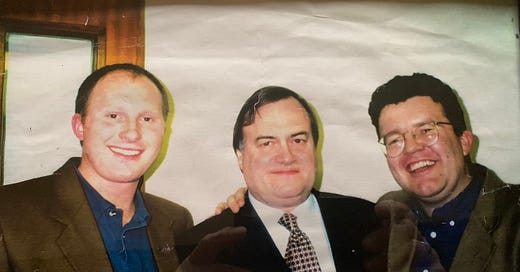Lisa Nandy’s appointment as Secretary of State for Culture, Media and Sport was met with interest. Here was a politician with leadership ambitions and a reputation for sharp intellect taking on a brief that often struggles for prominence in Whitehall. As we near Labour’s 150 days in office, her opponents are asking whether she can turn her promises into meaningful change.
Her early statement that “we won’t waste a moment” set the tone, and there was genuine optimism that a Labour government would prioritise culture and the creative industries. Nandy has spoken of her determination to champion creative sectors and restore music and the arts to the heart of national life. But some say her actions so far leave the impression of a minister still finding her feet rather than seizing the opportunity to make bold, lasting change.
The UK music industry offers a clear example of what’s at stake. It contributes £7.6 billion to the economy and employs 210,000 people. Yet it faces a host of problems that demand urgent attention. Grassroots venues, essential to nurturing new talent, are closing at an alarming rate. Post-Brexit restrictions have made touring Europe a logistical and financial nightmare for British artists. Streaming revenues remain contentious, as songwriters and performers argue for a new funding formula. And artificial intelligence poses new challenges to copyright and creators’ rights. On top of this, music education is increasingly out of reach for working-class children, locked out by cuts to school budgets and the rising cost of instruments.
Yet Nandy has acknowledged many of these issues. She has pledged to put arts and music back into the school curriculum, protect copyright, and support venues under threat. Her speeches often emphasise her understanding of the challenges. Yet tangible outcomes remain elusive. Critics complain that in dealings with key stakeholders, she allows her political team to focus on the minutiae rather than the big picture, alienating natural supporters and missing opportunities for transformative change.
Her announcement this month of a consultation for a National Youth Strategy has drawn criticism, particularly given it coincides with the decision to cut support for the National Citizen Service (NCS), a flagship programme introduced under David Cameron. The closure of NCS has prompted sharp rebukes, including from Cameron himself. A source close to the decision suggested the move was rooted in personal dislike, commenting that “she’s just never liked it.” A commitment to “walk alongside” young people and co-produce solutions may sound good, but for youth workers in the northern towns she so often champions, this could feel like another delay rather than a transformative shift. A bold initiative, like a rehearsal spaces for young people in every town, might have carried more weight.
Nandy’s broader approach suggests a cautious politician. Her style is deliberate, preferring consultation and collaboration over dramatic gestures. But the culture brief is one that often requires speed as well as thoughtfulness. In an industry as fast-moving as music, momentum can make all the difference.
Her supporters argue that she is laying the groundwork for a long-term strategy, and that change in areas like streaming or Brexit touring requires consensus-building. Her critics might say that six months is long enough to begin showing results, especially in a sector that has been crying out for action after years of neglect.
What is clear is that Nandy has the chance to make a real impact, both in Westminster and across the devolved nations, where collaboration could strengthen the creative sectors in Scotland, Wales, England and Northern Ireland. Culture is devolved, and a joined-up approach would show she understands the bigger picture.
The promise of Lisa Nandy is one of thoughtfulness, empathy, and ambition. Whether she can translate those qualities into real outcomes for the creative industries will depend on the pace and focus of her actions in the months ahead. The creative sector will be watching.
Farewell JP
This is probably my favourite political memory. JP having the craic with a couple of upstarts at a Labour Party social. I’ll write a bit more about him in the weeks ahead.




